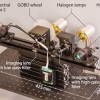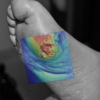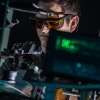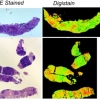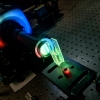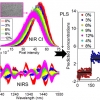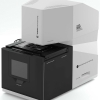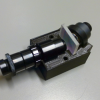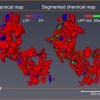News
Imaging News
Hyperspectral imaging can detect weak from strong hardened concrete and normally fired bricks.
Machine learning techniques using a combination of the layer clustering and decision tree methods aids prediction of spectra.
New hyperspectral camera system can capture 3D images, time and spectral information.
A rare mineral that holds potential as a new material for industrial and medical applications has been discovered on alpine plants by Raman microscopy.
Multispectral imaging technology which could enable more targeted observation of environmental conditions on Earth is being developed in research led at the University of Strathclyde.
Waters acquires exclusive rights to desorption electrospray ionisation (DESI) technology for all mass spectrometry applications from Prosolia and PRF.
Hyperspectral imaging is being used to image wounds and could provide more information to support wound care in people with leg wounds.
The winner of the 2018 Tomas Hirschfeld Award is Professor Christian Huck.
Applications for this prestigious award are invited by 30 November 2018.
Bruker has acquired Anasys Instruments Corp., maker of the nanoIR products.
Rice University scientists are using snapshot hyperspectral imaging to view a field of plasmonic nanoparticles simultaneously to learn how their differences change their reactivity.
A new mid-infrared imaging technology can be used to grade cancer tumours, eradicating human subjectivity and ensuring patients get the right treatment.
New business unit dedicated to hyperspectral imaging solutions.
Researchers from Nanyang Technological University, Singapore, have developed a new camera technology that could be used to produce extremely compact multispectral cameras.
The final step in pharmaceutical production is often tableting. Near infrared chemical imaging can be used to monitor inconsistencies in the powder that will become the tablet, which have been introduced by mechanical processes in the tableting equipment and can lead to out of specification tablets.
Bruker has acquired IRM2, a developer of high-speed infrared (IR) imaging microscopes based on quantum cascade laser (QCL) technology.
THz spectroscopy and imaging offer improved imaging of breast cancer tumours.
Researchers have used 3D printing to make the holder for the optics used to create an inexpensive and small hyperspectral imager.
A coherent, nanoscale beam of X-rays from a synchrotron source have been used to map chemical reactions happening inside lithium-ion batteries in three dimensions at the nanoscale.
Researchers are using hyperspectral sensors to detect fluctuations in photosynthesis over the growing season measured with sun-induced fluorescence.



